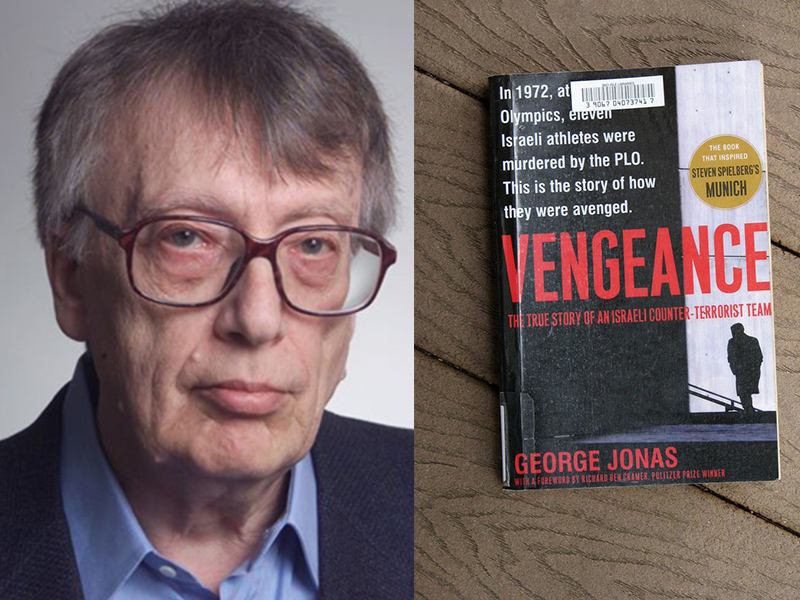We’ve lost far too many people in 2016, from David Bowie to Muhammad Ali. This list includes two Canadians I knew, and respected, with remarkably similar backgrounds: George Jonas and John Furedy.
Both men were born in Hungary and escaped Nazi persecution. Both had Jewish lineage. Both sided with libertarian/classical liberal principles. Both strongly supported free speech.
Jonas was born in 1935. His non-practising Jewish parents used false papers and posed as a Christian family to survive the war. Religion wasn’t a guiding force in his life. He once wrote, “I’m not an atheist for the same reason I’m not a theist. A believer, whatever his religion, must assume there is a God, while a denier must assume there isn’t. I don’t know enough to assume one way or the other.”
Jonas had a storied career at the CBC, Toronto Sun and National Post. He wrote 16 books, including Vengeance (1984), which was adapted into Steven Spielberg’s 2005 film, Munich.
READ: GEORGE JONAS: A CONSUMMATE OUTSIDER
He nearly participated in one of former prime minister Stephen Harper’s speeches, too.
Harper was scheduled to speak at an Oct. 4, 2006, state dinner honouring then-Hungarian president Laszlo Solyom. I was assigned the task of writing his speech, but a fellow speechwriter, Paul Bunner, suggested Jonas’ possible involvement. I agreed and contacted my old friend by email. His proposal was to “look at your draft speech, comment, and perhaps suggest some additional lines.”
Alas, the dinner was postponed due to political tensions in Hungary. It was the closest, I believe, that Jonas came to playing a supporting role in Canada’s political process.
Regardless, his views on free speech were legendary. He summarized them in an Aug. 12, 2012, National Post column: “Freedom of speech protects both speech and speaker from being silenced or censored because of what others may regard as requirements of social harmony, good taste, decorum, history, science, political correctness, or the truth itself, but can’t protect anyone from being regarded by contemporaries as unpleasant, indecorous, shrill, uncouth, hysterical, tasteless, false, ignorant or stupid.”
Moreover, Jonas correctly pointed out, “Those who want to limit free speech claim that it’s not absolute, but this is false. Free speech is absolute; it’s just that using words doesn’t amount to a pass to break the law.”
READ: FREE SPEECH LIKELY REASON ANTI-BDS VOTE FAILED
In contrast, Furedy was born in 1940. His wife, Chris, who kindly sent me some materials, wrote in an email, “John had no religious belief, but he identified more and more with his Jewish heritage as he aged. (His parents, fearful of anti-Semitism anywhere after their experience in Hungary, made him an Anglican when they came to Australia.)”
He was a professor emeritus of psychology at the University of Toronto. While his research included automatic conditioning and detection of deception, his real passion lay elsewhere.
Furedy was frustrated by “velvet totalitarianism,” or the restriction/criminalization of free speech. In an April 2, 2014 interview with The Australian, he said, “I call it that because the punishments are less severe, but people still try to censor themselves and each other. They do it on an unconscious level. There can be no contest of ideas if we go too far down this path.”
This helps explain why Furedy publicly defended, of all people, Ernst Zundel.
He wrote in a 2005 National Post letter to the editor, “I have long been disgusted by Zundel’s publicly stated, anti-Semitic opinions. Nevertheless, as one who has had first-hand experience of… ‘fear societies’ in the form of the Nazi and Soviet tyrannies, I have, since 1987, defended, in print, Zundel’s right to publicly state his disgusting opinions, because I did not want to see a Canadian shift towards the fear end of the free-fear continuum.”
Furedy and Jonas were, therefore, free speech trailblazers. They took intelligent, principled positions in support of liberty, democracy and freedom. Their loss is Canada’s loss, and they’ve left some giant boots to fill.
